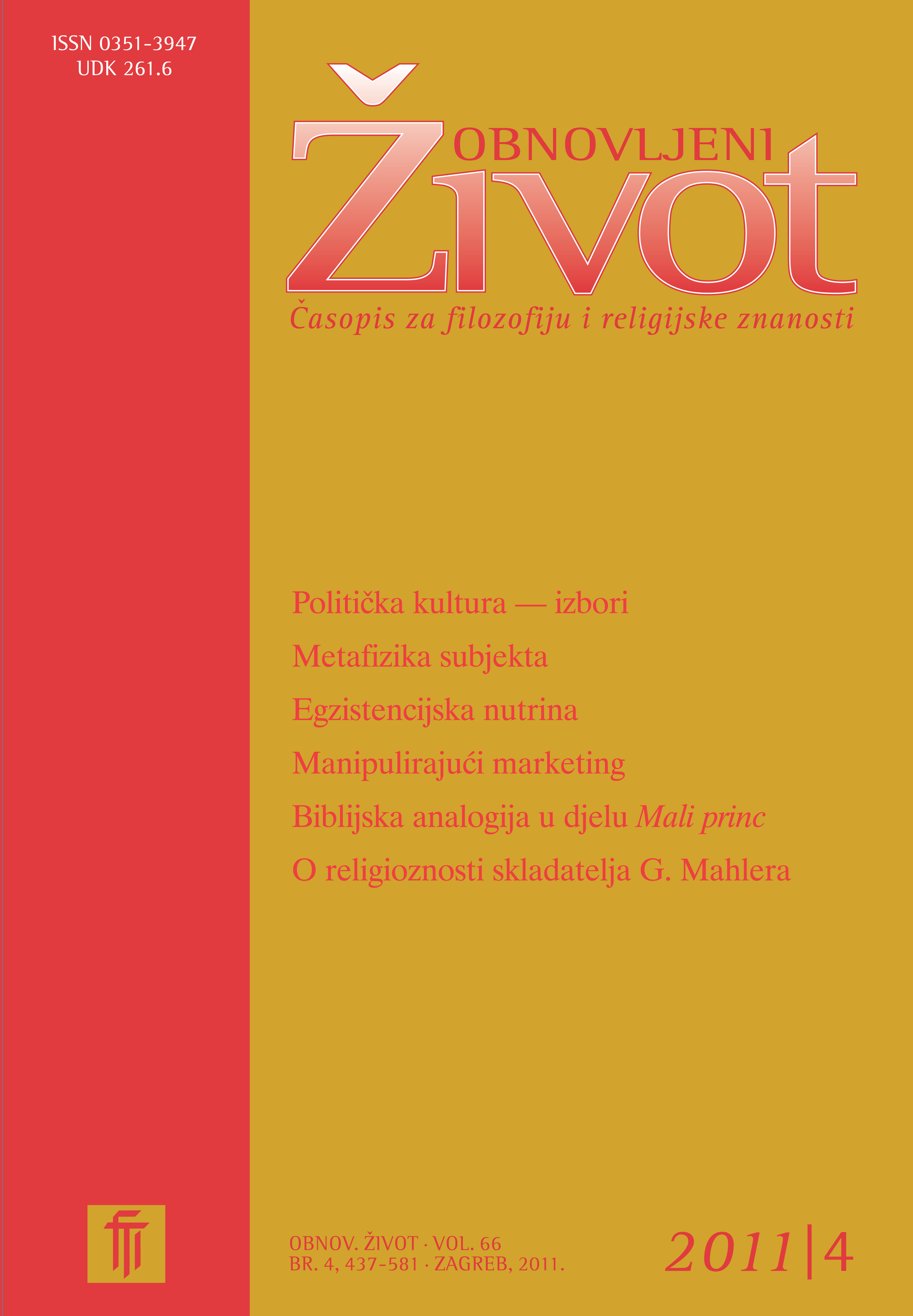On the Religiosity of the Composer Gustav Mahler
Keywords:
relgiosity, Judaism, Catholicism, conversion, musical creativity, symphonies, solo songsAbstract
Many of the works of the important Late-Romantic composer, Gustav Mahler are currently being performed to mark the centenary of his death (1860-1911). Various articles, studies and books are being written on his life and his work. Radio programmes are also being done. This essay attempts to delineate the complexity of Mahler's personality with regard to his relgiosity. Mahler converted from Judaism to Catholicism. His conversion has been the subject of many discussions which were taken up from different perspectives and which have resulted in different conclusions. A larger number of authors claims that Mahler converted to the Catholic faith for reasons of opportunism (so as to be installed as Music Directer of the Vienna Opera House). Fewer (among them are even some Jews as well) are of the opinion that it was a logical step undertaken after a lengthy preparation in the course of his religious quests and growth. The composer was baptised and thus officially became a member of the Catholic Church, however he never actually practised the faith. For his entire life he was at the same time a God seeker and doubter, and his religiosity consisted in various elements: philosophical faith, pantheism, Judaism and Christianity. Thus the fact remains that many of his works are marked by religious content and symbolism.
Downloads
Published
Issue
Section
License
Jednom prihvaćeni članak obvezuje autora da ga ne smije objaviti drugdje bez dozvole uredništva, a i tada samo uz bilješku da je objavljen prvi put u Obnovljenom životu. Uredništvo će obavijestiti autora o prihvaćanju ili neprihvaćanju članka za objavljivanje.
Članci objavljeni u časopisu se, uz prikladno navođenje izvora, smiju besplatno koristiti u obrazovne i druge nekomercijalne svrhe.


